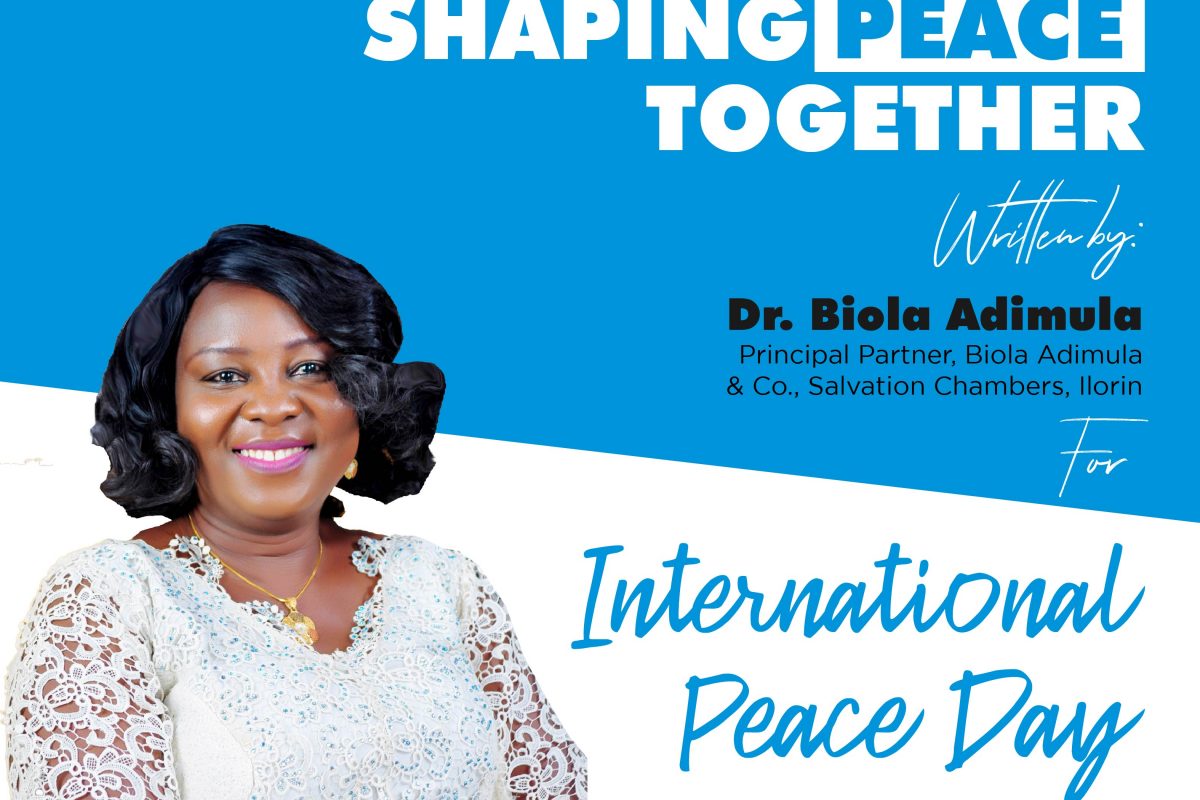As the popular saying goes ‘There are two people you shouldn’t lie to; your doctor and your lawyer.’ From the time immemorial the relationship between patient and doctor has always been sacred with ultimate confidentiality.
The patient–doctor relationship comprises of four main elements: knowledge, trust, loyalty, and regard. These elements have doctor and patient aspects to them, which may be reciprocally related. However, over the centuries there are reports of abuse of the relationship especially from the doctors.
The purport of this short article only seeks to examine the right of patients in relation to the Patient’s Bill of Rights (PBoR).
A patient’s bill of rights is a list of guarantees for those receiving medical care. It may take the form of a law or a non-binding declaration. Typically a patient’s bill of rights guarantees patients information, fair treatment, and autonomy over medical decisions, among other rights. [1]
The rights of patients in Nigeria are not new to the medical & legal environments. There are various legislations including the 1999 Constitution of the Federal Republic of Nigeria, the National Health Act, 2012 and various codes of ethics for healthcare practitioners which make conscious provisions on the rights available to users of healthcare services.
Sections 33, 34 and 35 of the Constitution of the Federal Republic of Nigeria 1999 (as amended), provides for fundamental rights to life, dignity of human person, and personal liberty respectively. These rights are inalienable rights and the apex court in Nigeria has given it a judicial flavour in the case of Mustapha v. Governor of Lagos State (1987) LPELR – 1931 (SC) said these are rights which encompass all humanity, and attach to a man because of his humanity.
The patient Bill of right sets standards for operation for both consumers and healthcare providers in the country and to ensure optimal consumer satisfaction in the health sector.[2]
A bill of right is the compilation rights of citizens of a country. The purpose of bill of rights is to protect those rights against infringement. The Bill provides for 12 basic rights for patients.[3]
1. Right to relevant information in a language and manner the patient understands, complete and accurate information about diagnosis, treatment, prognosis, other procedures and possible outcomes. This right also guarantees the patient to fully participate in implementing the treatment plan and making decisions.
For effective claim of this right, the patient has a duty to Seek information from the hospital or health facility about their services, Understand the treatment plan, Provide details about any changes occurring during, or on account of treatment and Report dissatisfaction to appropriate authority
2. Right to timely access to detailed and accurate medical records and available services. This gives the patient the right to know the skill of the medical practitioners attending to him. Hence, patient need to request for these information.
3. Right to transparent billing and full disclosure of any cost. Each drugs and treatment received by the patient must be itemized and the financial implication stated.
4. Privacy and confidentiality of all information and medical records unless disclosure is vital and in the interest of public health in accordance with prevailing law. The patient is duty bound to be completely truthful and accurately disclose any medical history, medication and complaints to the medical practitioner.
5. Right to clean and safe healthcare environment. Patient has the right to equitable quality care but not to constitute a nuisance or in any way endanger others.
6. Right to be treated with respect without discrimination. This right encapsulates that patient must be treated with absolute respect without prejudice to gender, religion, race, ethnicity, allegation of crimes, geographic location, disability or socio-economic circumstances. Also the prior wishes of the patient or of the next of kin (where legally applicable) are respected to the fullest extent practicable at the time of death including cultural or religious preferences, to the extent of its consistency with extant laws including coroners laws.
7. Right to receive urgent care immediate and sufficient intervention and care, in the event of emergency. Patient that need urgent medical attention in the event of an emergency must be prioritized over other factors including cost and payment, as well as law enforcement requirements.
8. Right to reasonable visitation in accordance with the laid down rules and guidelines. However, the patient must respect that the health care facilities reserve the right to modify rules to maintain decorum and ensure security of patients and medical practitioners, provided reasonable notice of modification is given.
9. Right to decline care subject to other prevailing legislations. Patients at all times, retain the control of their person and must be informed of their power to decline care upon full disclosure of the consequences of such decisions.
10. Right to decline or accept to participate in medical research or clinical trials. Patients have the right to c o n s e n t o r d e c l i n e participation in medical research, experimental procedures or clinical trials in the course of treatment.
11. Right to quality care in accordance to prevailing standards. To be informed about impending interruption or disengagement of services of medical personnel.
12. Right to complain and express dissatisfaction regarding services received. To express dissatisfaction regarding service and/or provider including personnel changes and abuse. Patient must however complain in accordance with redress mechanism of the facility and provide sufficient details of dissatisfaction.
Conclusion
There is no gain saying that the development of the healthcare sector in Nigeria will be hasten only through the delivery of quality and affordable healthcare services. Thus, the protection of rights of patients is crucial to this growth. More sensitization and education is needed for Nigerians to be aware of these rights available to them.
[1] https://www.proshareng.com/news/Business-Regulations,-Law—Practice/Nigerian-Patient%E2%80%99s-Bill-of-Rights–5-T/41193
[2] https://www.pulse.ng/bi/strategy/strategy-explainer-heres-everything-you-need-to-know-about-the-patients-bill-of/922nk4w
[3] http://fccpc.gov.ng/uploads/files/patients-bill-of-rights-full-version.pdf





